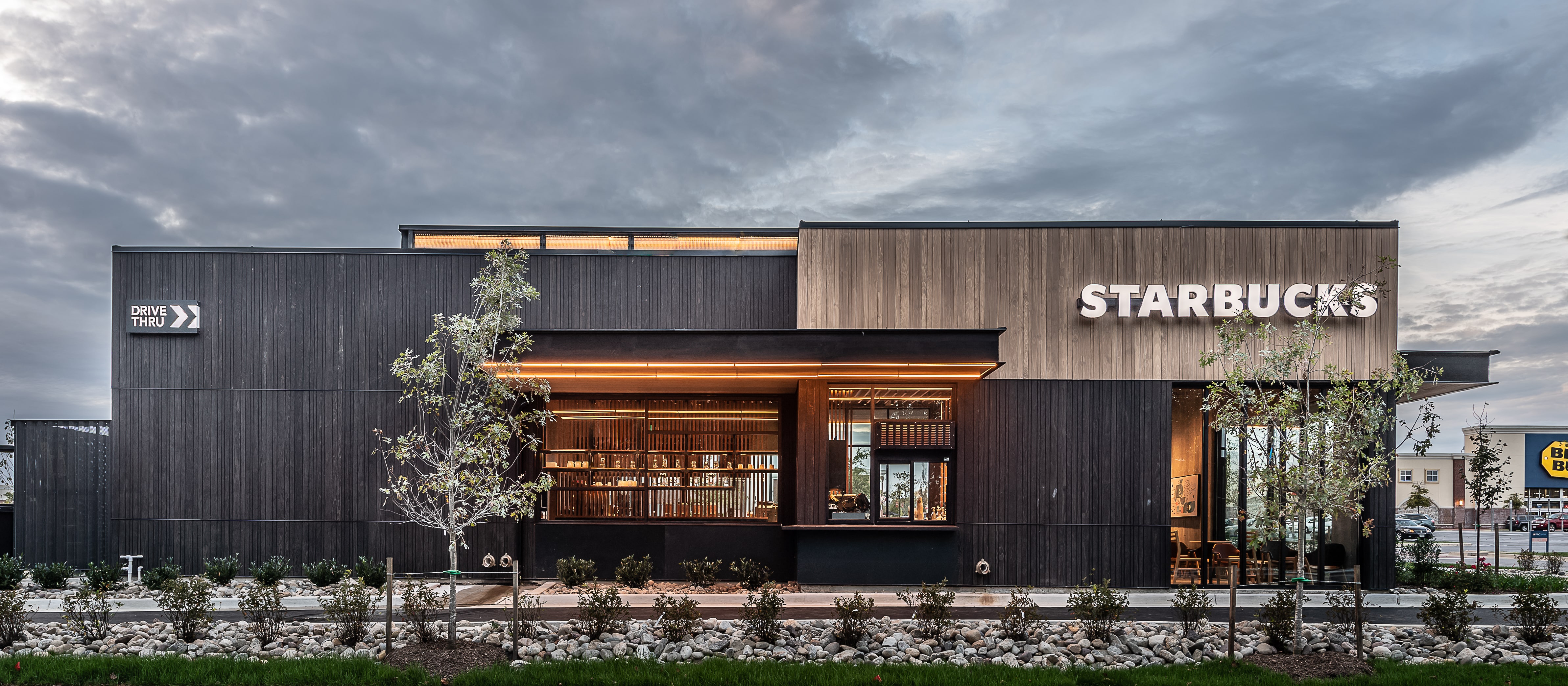
Coffee giant Starbucks has announced plans to close 400 of its stores across the US and Canada, in favour of convenience-led formats that offer drive-thru and curbside pick-up.
Supported by the Starbucks App, customers at the new Starbucks Pickup locations will be able to order and pay ahead, benefiting and adding to the company’s 19.4 million Starbucks Rewards members.
The company says this shift in focus to digital rather than human-led transactions is being accelerated in part due to the changes brought about by Covid-19, as well as to meet the already evolving customer needs of convenience, connection and personalization.
“Starbucks stores have always been known as the ‘third place’, a welcoming place outside of our home and work where we connect over a cup of coffee,” said Kevin Johnson, CEO of Starbucks. “As we navigate through the Covid-19 crisis, we are accelerating our store transformation plans to address the realities of the current situation, while still providing a safe, familiar and convenient experience for our customers.”
The shift to digitization
Prior to the Covid-19 crisis, Starbucks says that approximately 80% of its US transactions were on-the-go. This indicates that, while the pandemic has no doubt disrupted customer behavior, the desire for these on-the-go options is not a new trend.

“We can be assured that this is a financially-driven decision and one that likely was in strong consideration before Covid-19 as they studied the sales reports. None of us knows what consumer behaviors will fall out of this coronavirus situation; but making some moves to an altered way of being is likely critical to survival,” says Karen Malody FCSI, principal of Culinary Options In Portland – and formerly the food and beverage director at Starbucks.
“That said, I hope this shift to digitization is not too knee-jerk in response to the times we see today versus what human behavior will return to, or morph into, within a year’s time.”
The US store portfolio transformation includes the expansion of new Starbucks Pickup stores in large cities, such as New York City, Chicago and San Francisco, and introducing curbside, drive-thru and walk up windows in more suburban areas.
While acknowledging the benefits of digital personalization, which she says is one of Starbucks big selling points, Malody believes the need for great third places will remain critical.
“Starbucks has always been technologically advanced, and it has rewarded them with increased throughput and sales. Simultaneously, however, they have promoted their environments as these vital third places,” she explains.
“As many surveys have shown around the issue of working from home, a large percentage of people want to have that ability into the future for at least two days of the week. Perhaps the need for socialization has been diminished as a result of Covid-19, or at least altered, but it is still important to have places to go with one’s computer, or friends, or family or to just sit and ponder.”
And, she argues, nothing is more personal than being greeted by a friendly team member who knows your name, your favorite drink and invites you to sit down and stay a while.
Socially distanced is the new normal
Of course, social distancing requirements have caused a significant shift in the way restaurants and cafés interact with and serve their customers.
“The entire foodservice industry has been thrown on its ear. Curbside, delivery and pick-up were not part of many operations’ vocabulary three months ago. Those who were already set up for this were rewarded. Those that had to cobble together solutions on the run were mightily challenged,” says Malody.
And with these measures set to continue, many operations will likely need to retain those delivery models even as they open their dining rooms.
“This is no small task from a spatial and logistical perspective. But dining room income will not singularly sustain them,” says Malody.
“The looking question for me is this: with the shifts in human behavior and the intensity of digitization, will the basic meaning of, and need for, foodservice operations become something different from one of restoration of the human spirit?
“Perhaps one positive thing to come out of the Covid-19 quarantines will be the re-evaluation of our own behaviors: where are we going and what is it we need to do that is driving such fury around speed and convenience? The answer to that will be a part of the reshaping of foodservice in America.”
Liz Cooley
